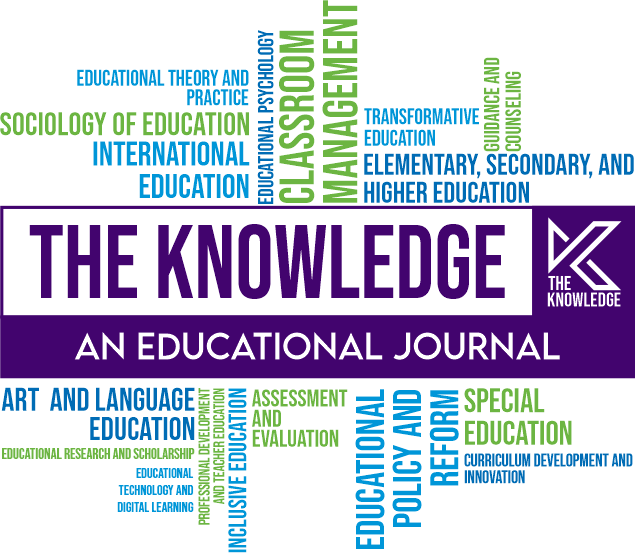Opportunities and Challenges for Girls' Education in Afghanistan
DOI:
https://doi.org/10.63062/tk/2k23a.23302Keywords:
Female Education, Afghanistan, Challenges, Taliban GovernmentAbstract
In Afghanistan's long past, there have been many ups and downs when it comes to girls' education. When it came to education, women in Afghanistan have had the worst time in the past. Before the civil war in Afghanistan, girls' education wasn't very good from the start. The three decades of fighting and war made things worse for girls who were trying to learn. During the time of the Taliban government (1996–2001), no girls were in school. With the help of the rest of the world and the formation of a new government in 2001, hopes came back to life. But even after sixteen years, the schooling of women is still not good enough. The main topic of this study is how girls and boys don't have the same access to primary, secondary, and especially higher education. The study will also look into the main problems that make it hard for women to go to school. A lot of different research papers, educational pieces, reports, and other similar sources were used to gather data for this study
References
AbiRafeh, L. (2022, August 15). Afghanistan one year Later — and the story of one Afghan woman. Medium. https://linaabirafeh.medium.com/afghanistan-one-year-later-and-the-story-of-one-afghan-woman-df2b11ec37c2
Adali, A. O., & Uzoma, A. (2016). Issues of Instructional Supervisory Practices in Primary Schools of Ebonyi State. Journal of Education and Practice, 7(29), 183–188. http://files.eric.ed.gov/fulltext/EJ1118932.pdf
Ali, Y. A. (2013, August 6). Understanding Pashtunwali. The Nation. https://www.nation.com.pk/06-Aug-2013/understanding-pashtunwali
Barakat, S. (2022, December 28). Depriving Afghan women of an education would benefit no one. Al Jazeera. https://www.aljazeera.com/opinions/2022/12/28/depriving-afghan-women-of-an-education-would-benefit-noone
Coolahan, J. (2002). Teacher education and the teaching career in an era of lifelong learning. In OECD Education Working Papers. https://doi.org/10.1787/226408628504
Ebadi, A. (2022). Taliban’s ban on girls’ education in Afghanistan. United States Institute of Peace. https://www.usip.org/publications/2022/04/talibans-ban-girls-education-afghanistan
Goh, E. (2007). Great Powers and Hierarchical Order in Southeast Asia: Analyzing Regional Security Strategies. International Security, 32(3), 113–157. http://www.jstor.org/stable/30130520
Gul, A. (2022, February 27). All public universities in Afghanistan are open to male and female students. Voice of America. https://www.voanews.com/a/all-public-universities-in-afghanistan-open-to-male-female-students/6461202.html
Kamal, M. A. (2022, February 27). Gender inequality in education. Just a moment... https://www.pakistantoday.com.pk/2022/02/27/gender-inequality-in-education/
Mashwani, H. U. (2017). Female education in Afghanistan: opportunities and challenges. Social Science Research Network. https://papers.ssrn.com/sol3/papers.cfm?abstract_id=3084799
Olson-Strom, S., Rao, N. (2020). Higher Education for Women in Asia. In: Sanger, C., Gleason, N. (eds) Diversity and Inclusion in Global Higher Education. Palgrave Macmillan, Singapore. https://doi.org/10.1007/978-981-15-1628-3_10
ReliefWeb. (2022, December 25). Afghanistan: Inter-agency rapid gender analysis (November 2022). https://reliefweb.int/report/afghanistan/afghanistan-inter-agency-rapid-gender-analysis-november-2022
Roser, M. (2021, November 2). Access to basic education: Almost 60 million children of primary school age are not in school. Our World in Data. https://ourworldindata.org/children-not-in-school
Rubin, B. R. (2022, October 20). Afghanistan under the Taliban: Findings on the current situation • Stimson Center. Stimson Center. https://www.stimson.org/2022/afghanistan-under-the-taliban-findings-on-the-current-situation/
Shayan, Z. (2015). Gender inequality in education in Afghanistan: Access and barriers. Open Journal of Philosophy, 05(05), 277–284. https://doi.org/10.4236/ojpp.2015.55035
Siddique, A. (2022, December 1). Afghans are increasingly marrying off young daughters to avoid forced unions with the Taliban. RadioFreeEurope/RadioLiberty. https://www.rferl.org/a/afghanistan-early-marriage-avoid-taliban/32157525.html
Smith, C. A., Stone, R. P., & Kahando, S. (2012). A model of women’s educational factors related to delaying girls’ marriage. International Review of Education / Internationale Zeitschrift Für Erziehungswissenschaft / Revue Internationale de l’Education, 58(4), 533–555. http://www.jstor.org/stable/23255247
The right to education. (2022, June 26). UNESCO. https://www.unesco.org/en/right-education
UNESCO. (2009). Education and fragility in Afghanistan: a situational analysis. https://unesdoc.unesco.org/ark:/48223/pf0000184038
Published
Issue
Section
License
Copyright (c) 2025 Copyright in the THE KNOWLEDGE is retained by the author(s). Authors also grant any third party the right to use the article freely as long as its integrity is maintained and its original authors, citation details and publisher are identified.
This work is licensed under a Creative Commons Attribution-NonCommercial 4.0 International License.







